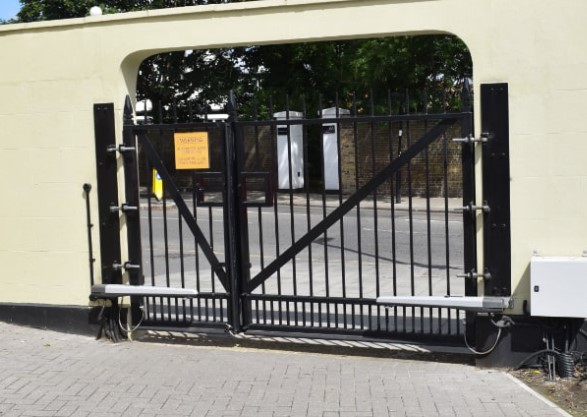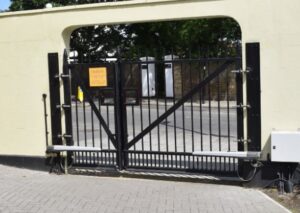As an access control provider, including systems for automated gates, we are supporters of the charity, Gate Safe, and its gate safety campaigns. We believe that all automated gates should be installed safely and recommend using Gate Safe Approved installers.
Gate Safe was originally was set up in 2010 following the tragic deaths of two children crushed by automated gates in separate accidents. The charity aims to prevent further accidents or fatalities occurring as a result of an unsafe electric gate or barrier installation.
Gate Safety by Design Programme Launched
In the last 10 years, accidents involving falling gates have far outnumbered those caused by the absence of the relevant recommended safety features. This has led the charity to turn more of its attention on gate and hinge manufacturers and last year it launched its ‘Gate Safety by Design’ initiative.
A survey of gate installers also found that as many as 84% installers reported that they perceived unsafe design to be the most common cause for automated gate accidents in the last 10 years. Over half of the respondents (58%) reported that the failure to eliminate hinge crushing or the lack of finger guards were the most common design flaws witnessed in the field.
Gate Safe founder and chairman, Richard Jackson said: “For almost 14 years Gate Safe has worked hard to improve the safety of automated gates and we know that the recommendation regarding the need for non-contact safety devices (photocells, light curtains and laser scanners) and contact safety measures (pressure edges) has been largely acted upon.
“But whilst the number of accidents which relate to a failure to install the relevant safety devices has dropped, there has been an increase in the number of falling gate accidents, hence our Gate Safety by Design programme.”
Push for all gates to have three hinges
One solution that would help is ensuring that all gates have three hinges which has been recommended in the latest British Standard’s guidance since 2018. Gate Safe believes if a gate does not have three hinges it should be issued with a safety notice that a suitable tether should be used in conjunction with the gate to prevent it falling.
Adherence to the three-hinge recommendation is currently very low based on surveys by Gate Safe. In a review of 49 gates published in January only around 20% had three hinges while last year an audit of 86 gates found just over 10% met this recommendation. Of the 63 gates that had two hinges just 12 (14%) had a gate tether fitted.
Richard, said fitting a safety tether is where installers can make a difference, and they could be liable for damages in the event of an accident, as they would have fitted a system that was not fit for purpose.
He added that it was a concern: “that so little is being done to retrospectively review these existing gates and when the absence of a third hinge is identified, to mitigate the risk of the gate falling by simply adding a gate tether. This measure costs very little – the average tether is priced under £10 – and from a customer perspective there is no fee associated with installation works.”
Call for more action by gate manufacturers
As part of its ‘Gate Safety by Design’ campaign the charity wrote to UK gate and hinge manufacturers last year to gain their help to ensure more gates are compliant with the guidance which is supported by the British Standard EN 12604 – which states that a gate should not be capable of falling through a single point failure. However, Gate Safe complained in January that the response from these companies had been slow.
The ‘Gate Safety by Design’ web page identifies other areas of weakness in gates that improved design and construction could rectify. For example, sliding gates need to be fitted with end stops that will be crucial if there is a failure in the automated system, or has been switched for some reason to manual operation. Installers can mitigate the risks of sliding gates over travelling by adding extra fixings, and Gate Safe has provided instructions on this.
The charity has also identified the dangers of gaps in and around swing and sliding gates which can sometimes lead to problems when a gate or barrier fails and people take risks to gain access. These potential dangers of entrapment, crushing or cutting, could be made worse if the gate or barrier subsequently begins to function.
Ecl-ips recommends that if you are having automatic gates installed you ensure that you select an installer that is approved by Gate Safe. This means they will be required to renew annually and they have to undertake Gate Safe’s IOSH approved specialist awareness training every two years. This ensures they are kept fully up to date with technology and safety developments, as well as the latest best practice and the gate safety by design initiative. If you need access control advice for your gates please contact us.



